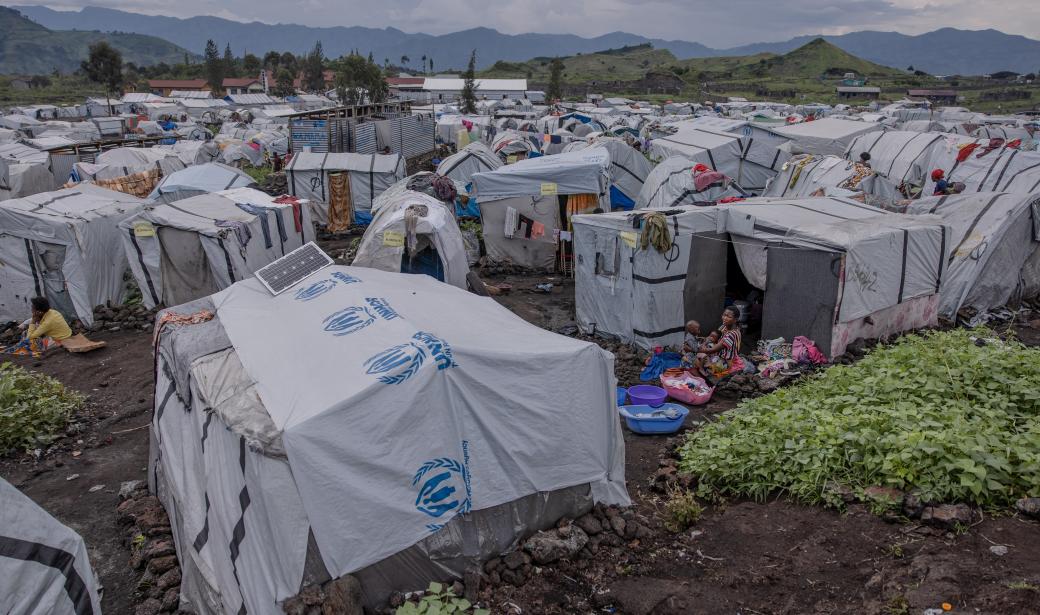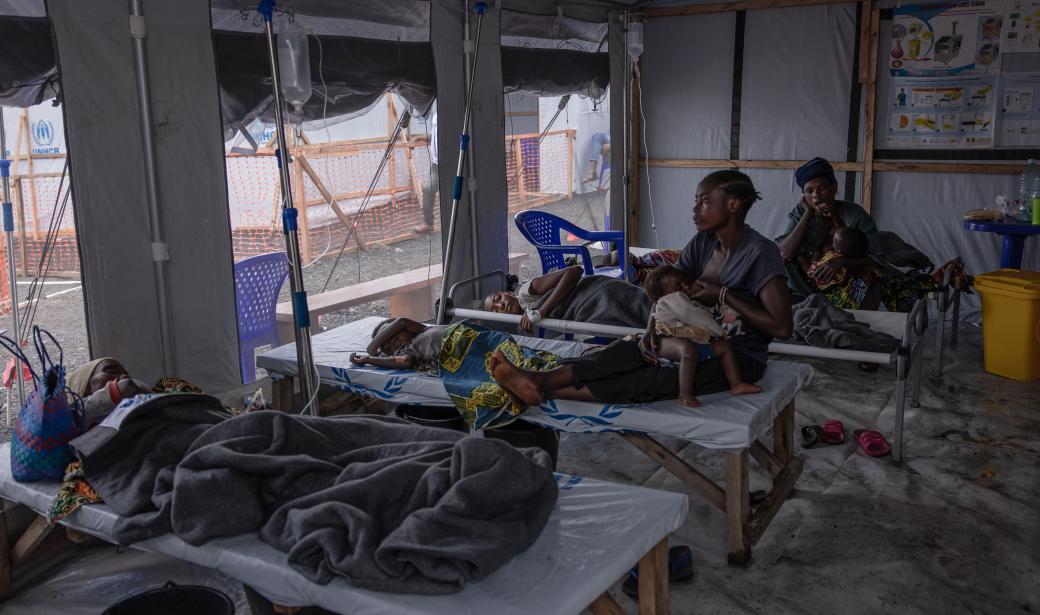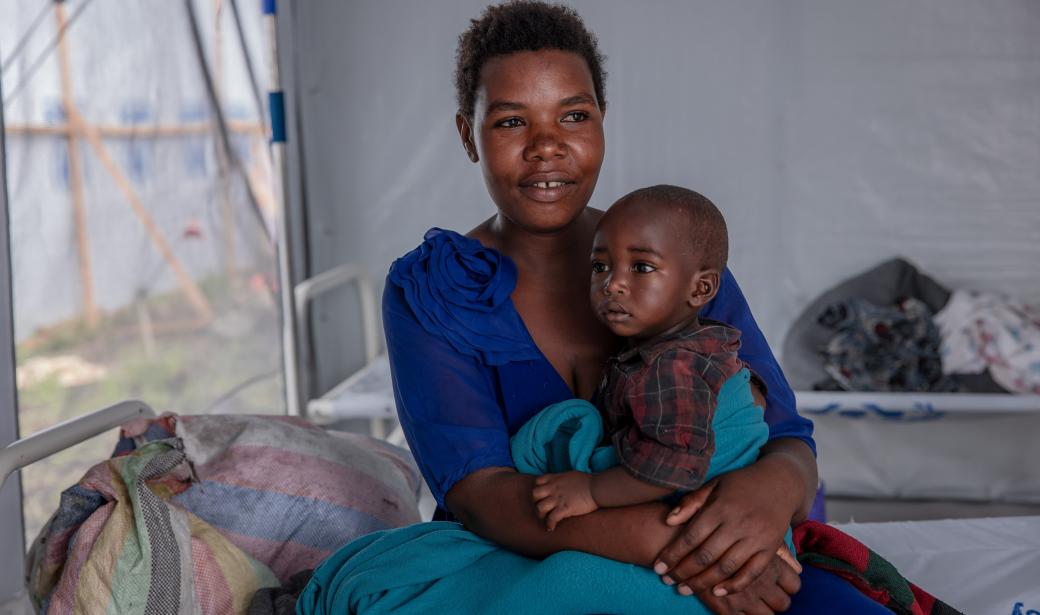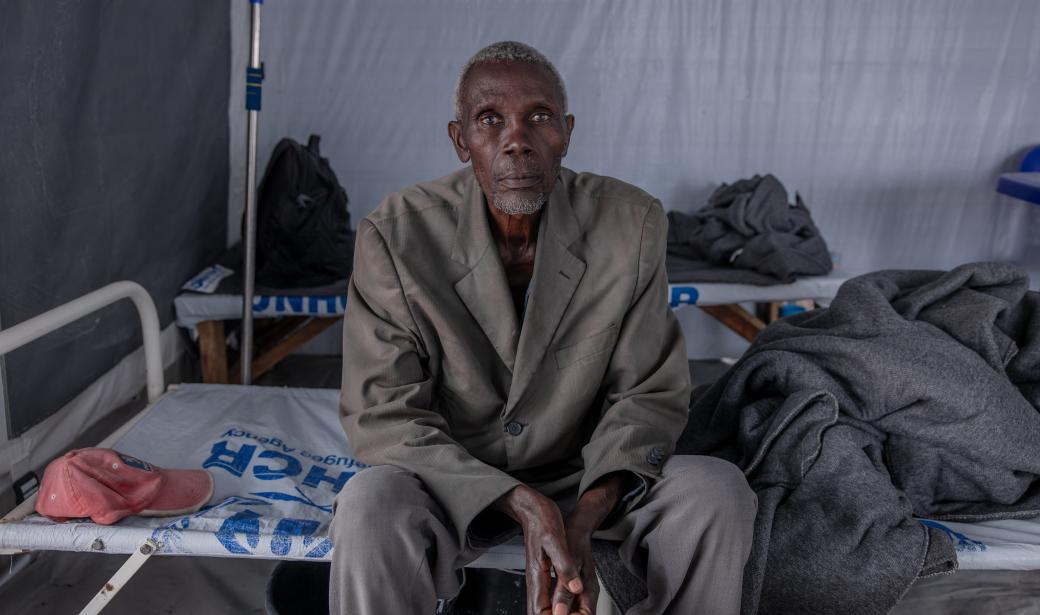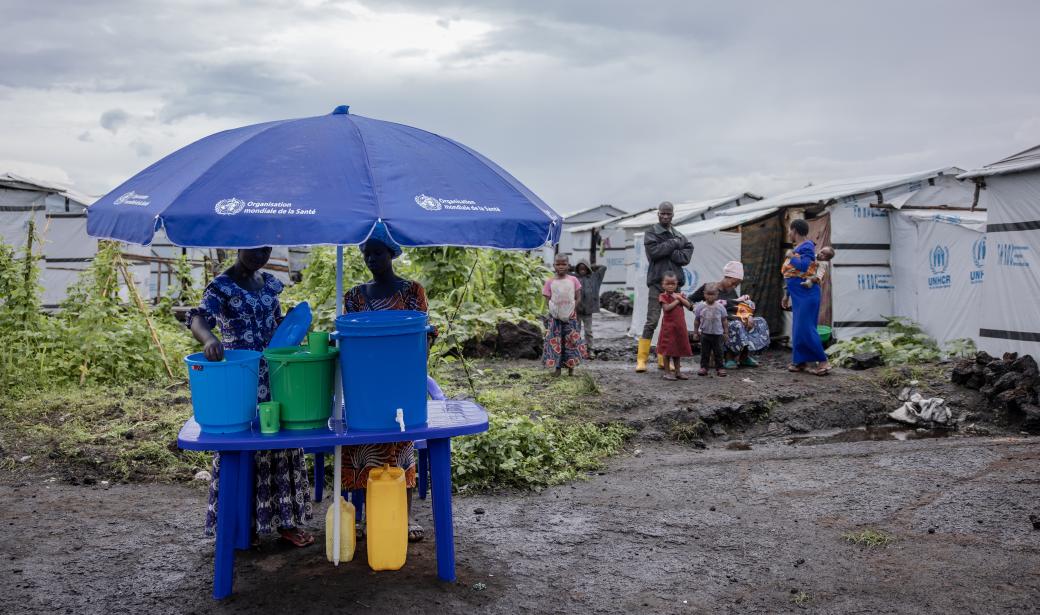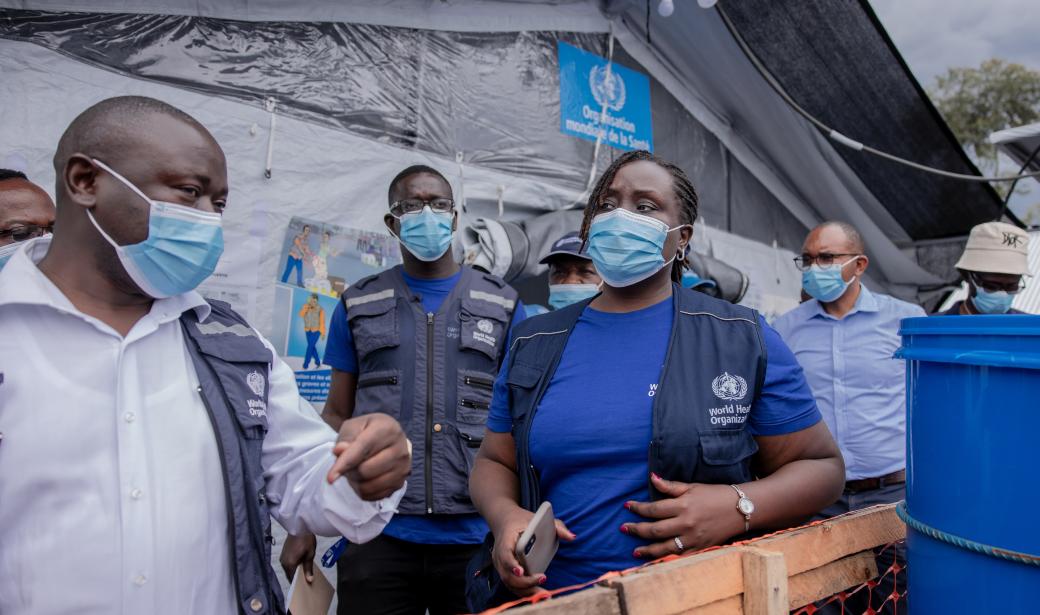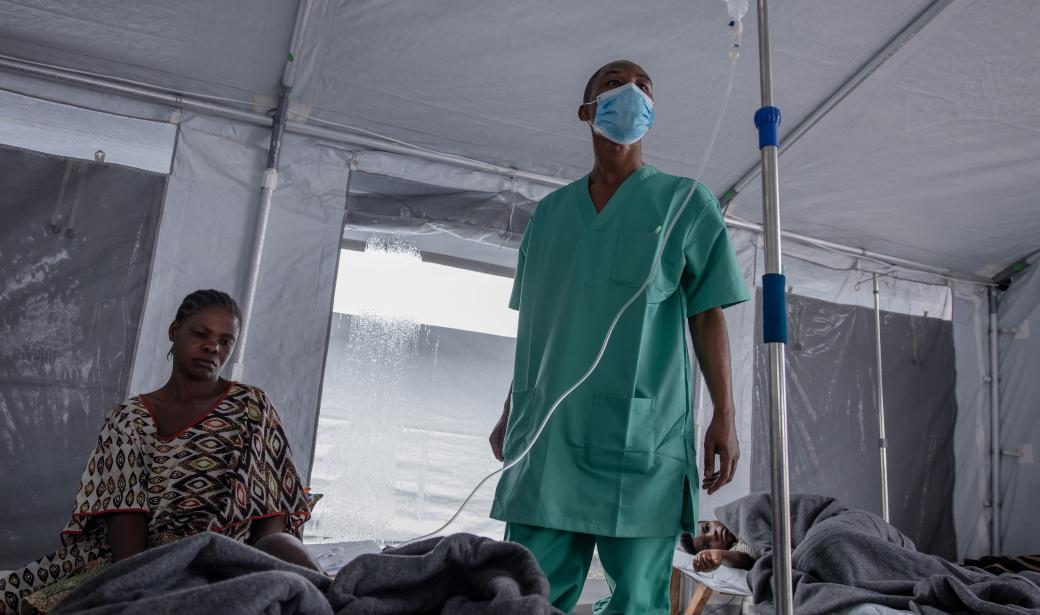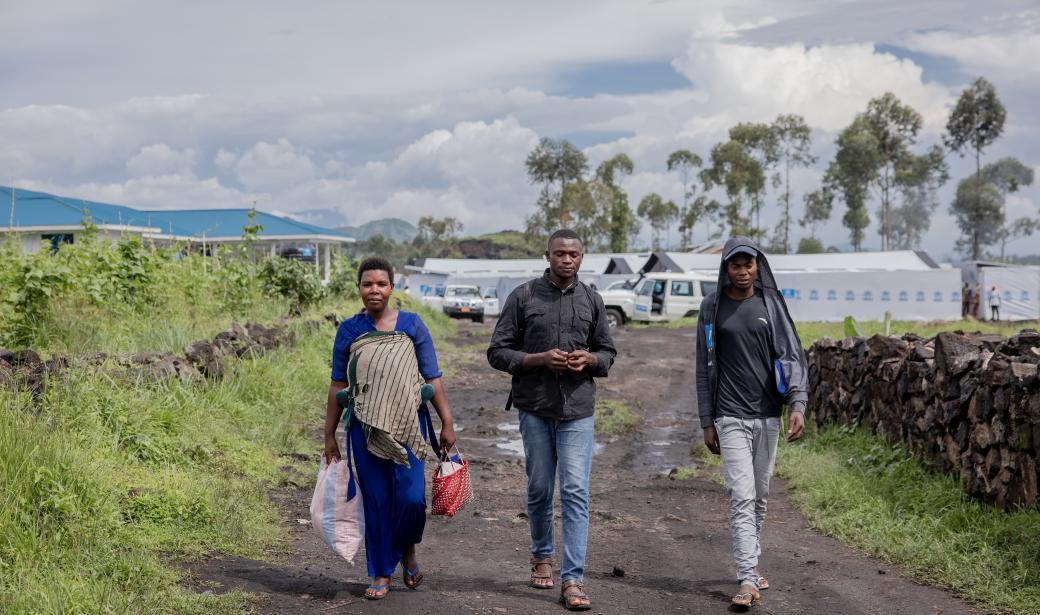Goma – More than 6 million people have been displaced by recurrent armed violence and insecurity in eastern Democratic Republic of the Congo. Since the beginning of 2023, violence has escalated in six provinces – Ituri, Kasai, Mai-Ndombe, North Kivu, South Kivu, and Tshopo – forcing nearly one million people to flee their homes.
Living conditions are dire in the displacement camps. Water supply, hygiene and sanitation services are inadequate – conditions that favour cholera outbreak. In Rusayo locality in North Kivu province, an outbreak of cholera since October 2022 has worsened the plight of the displaced. The nearest health facility is four kilometres from the Rusayo camp for the displaced, complicating care for severe cases, which have to be transported on motorbike to the treatment centre.
To help scale up health emergency response, World Health Organization (WHO) supported the establishment of a new cholera treatment centre on the outskirts of Rusayo camp. More than 1500 people, mostly children under five years, have received treatment since September 2023.
With an already fragile health situation and overcrowding on the site, cholera has become endemic.
The new 50-bed Rusayo cholera treatment centre receives patients who often arrive very early.
“This is due to efforts made by community mobilizers we have trained with WHO support. They raise awareness about the symptoms and stress the need to go to the treatment centre as soon as the first signs appear," explains Dr Lydie Fatuma, Medical Supervisor at the Rusayo camp cholera treatment centre.
“We’re glad to have a treatment centre close by, and the treatment is free of charge. I don't have diarrhoea anymore. If they give me medication, I can go back to the camp," he said.
Seeking care promptly is critical in saving lives.
Oral rehydration points have also been set up the camp. These are the first steps in treating cholera. Patients rehydrate themselves to reduce the risk of arriving at the treatment centre in critical condition.
“As soon as a case is confirmed, the household and nearby tents are systematically disinfected before the patient is discharged from the treatment centre,” says Dr Alain Mangolopa, WHO Field Coordinator in North Kivu.
“The response to cholera should be based on a holistic approach because any solution to the epidemic depends mainly on access to drinking water and sanitation services, as well as medical care,” he says.
Given the health situation in the camps, the province is focusing on prevention. “We’re in the rainy season and we’re expecting outbreaks, so we’re stepping up our response in terms of water supply and prevention, particularly vaccination against cholera,” explains Dr Stephane Hans Batey, Head of the Nord Kivu Provincial Health Division. “We have already secured 2.6 million doses for IDPs and host populations.”
A vaccination campaign kicked off on 11 December to cover eight most affected health zones in North-Kivu.
Agnes Olive, with her son on her back, and two other patients discharged, returned home with the resolve to be more vigilant about hygiene and to avoid going back there.
“Before leaving, the doctor insisted on cleanliness and hygiene. I'm going to follow his advice,” Agnes says.
Communications Officer
Regional Office for Africa
Email: lawsonagbluluf [at] who.int
Communications Officer
WHO DRC
Tel : +243 81 715 1697
Office : +47 241 39 027
Email: kabambie [at] who.int




